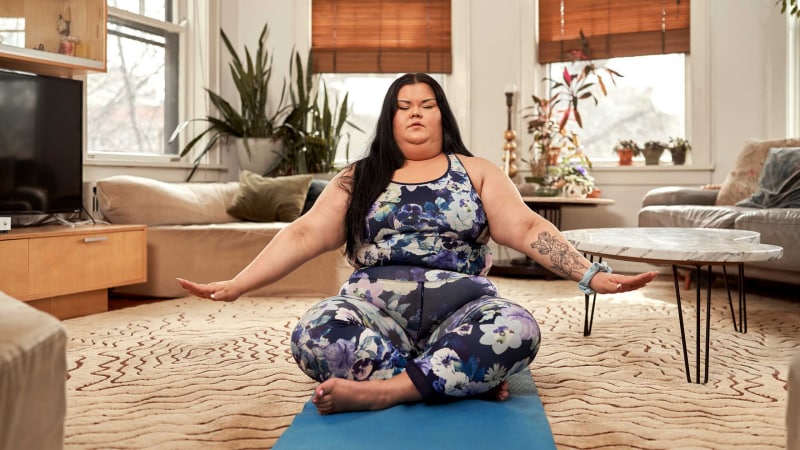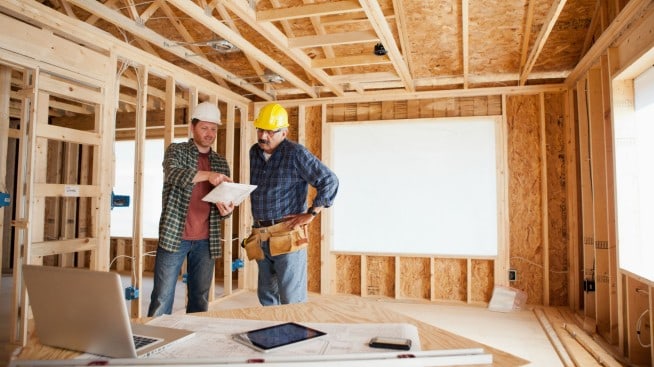Home improvements that may not add value

When it comes to home improvements, it may be hard to predict which ones add value to a home. Sadly, there may be some home improvements that may not add value as much as you might think. Let's look at some examples of improvements that, unfortunately, add little property value — that is to say, home improvements where the juice may not be worth the squeeze.
What brings down property value?
Your property value is how much your home is worth at a given time. In other words, it's what your home is likely to be valued at if you were to put it on the market. Depending on the housing market and the condition of your home, property value may be higher or lower at a given point in time. Certain renovations or high demand may increase your property value, while depreciative circumstances or disrepair may cause your property value to go down.
It can be unnerving to think about your property value decreasing. While this may sometimes be the result of circumstances beyond your control, it may be helpful to identify some of the things that bring down property value, just so you can potentially avoid (or prevent) making any accidental contributions to these value detractors, which include things like:
- Making changes to your home without a permit: If you're renovating your home, adding any new systems or features, it's best practice to ensure you've secured the necessary permits and approvals. If not, you may fail future inspections, receive fines or have trouble selling your home down the line.
- Damaged roofing: A damaged roof may bring your property value down significantly. Roof replacements are costly, and if a potential buyer finds damaged roofing during the inspection, they may back out of the offer completely or negotiate the purchase price down from what the home was originally listed at.
- Mold or mildew: A home filled with mold is another example of something that will likely bring down your property value. Depending on the type of mold, it may be incredibly dangerous for anyone living there, in addition to being a potentially costly nuisance to get rid of.
- Broken HVAC systems: HVAC (heating, ventilation and cooling) systems help keep your home comfortable year-round. If you're selling a home with a broken HVAC system, this will likely decrease your property's overall value, as HVAC systems are notoriously expensive to replace.
- Outdated appliances: Outdated appliances, especially when many major appliances need replacing, may bring down your home value. Potential buyers are often looking for a home that feels updated. If they find a home with good bones but too many major appliances that need replacing, this will likely decrease what they're willing to pay and, therefore, decrease home value.
- Plumbing system issues: If your home has significant plumbing system issues — particularly ones that may require a system replacement — this will be disclosed to your buyer. Replacing an entire plumbing system may become incredibly costly, which buyers are likely to factor into their valuations. The additional lack of functionality may also decrease the value of your home.
10 home renovations that may decrease your property value
When it comes to enhancing the value of your home, not all renovations are created equal. While some home upgrades may drive up your property's worth, others may have an adverse effect. Let's explore some examples of home renovations that may decrease your property value:
- Overbuilding for the neighborhood: You've likely seen this phenomenon: You're driving around a neighborhood and the nicest house on the block sticks out like a sore thumb. While nothing about this is inherently negative, overbuilding for the neighborhood may result in an overpriced property that is hard to sell. Buyers often look for homes that fit in with the surrounding area in terms of both size and style.
- Overdone landscaping: Manicured greenery may increase your levels of dopamine, but it may not increase your home's value. Ultimately, overdone landscaping in your front or backyard might intimidate buyers who fear high maintenance costs.
- Invisible improvements: Invisible improvements are improvements that help the functionality of a home but aren't necessarily seen and celebrated as one might hope. Some examples include upgrading your water filtration system or replacing old electrical outlets. Sure, your water may taste better or your phone charging station may look chicer, but ultimately these aren't improvements that will make or break a home sale.
- Trendy designs: It may be incredibly tempting to hop on a new home design trend but, let's face it, trends come and go. Renovations with highly specific, trendy designs may limit your potential buyer pool. Consider opting for trendy décor instead, while keeping more permanent fixtures timeless.
- Too much personalization: Piggybacking off the trendy design concept is the concept of personalization. While your home should reflect your style, excessive personalization may deter potential buyers.
- Garage conversions: Converting your garage into a living space may be tempting — having an extra room never hurt anybody, right? However, buyers often prioritize storage space and a place to safely store their vehicle.
- Carpeting: Extensive carpeting, especially the wall-to-wall kind, may not be appealing to buyers who prefer hardwood floors. While carpeting can be fun and cozy, the fabric typically requires additional upkeep and may trap allergens.
- Too much wallpaper: Just like carpeting, extensive use of wallpaper may make a home feel outdated. While wallpaper is a removable feature, potential buyers may want to deduct the value of the projected investment they'll be making in cosmetic changes to the walls.
- Bold colors: A fun splash of color or the occasional accent wall isn't likely to scare away most buyers, covering your home with vibrant, unconventional paint choices may prevent a potential buyer from moving forward.
- Swimming pools: While the addition of a sparkling swimming pool may seem luxurious, it's key to consider the climate and neighborhood norms. In an odd twist of fate, however, adding a swimming pool to your property might just dry up the pool of buyers interested in it. For example, the cost of maintenance and insurance or the perceived safety hazard for families with young children may affect your ability to make a competitive sale. With the right buyer, this may help your property value, but in the wrong market this may impact who is willing to buy.
Do note that the above examples don't automatically decrease your home's value. However, understanding these potential pitfalls can help you make informed decisions about home improvement projects.
Home renovation trends to avoid
When considering home renovations, it's helpful to strike a balance between creating a space that feels like you and making timeless choices. We discussed the impact trendy designs and excessive personalization might have on your home's value, but let's take a deeper dive into some home renovation trends to avoid:
- All-white or pastel kitchens and bathrooms: While the sterile look of an all-white or pastel kitchen and bathroom may be appealing to some, they may also be challenging to maintain. Whites and pastels are prone to visible staining and may go downhill quicker than other colors.
- Over-improving your home: As noted above, over-improving or overbuilding for the neighborhood may be a slippery slope. Consider researching the value of surrounding homes and aligning your investments and renovations accordingly. If your renovations exceed the value of surrounding homes, you may be losing value by pricing yourself out of the market.
- High-stake DIY projects: We live in a world where it's easy to learn almost anything online. However, some tasks are best left to the pros. If you're considering an ambitious DIY project, it may be best to hire an experienced contractor. If the project goes awry and a home inspection discovers an issue, you could be putting your home value in jeopardy.
Home renovation tips
Knowing what to avoid is a good start, but it's also helpful to know what kinds of things are worth leaning into. Here are a few things to consider for your next home improvement project:
- Prioritizing energy efficiency: Energy-efficient upgrades help lower your utility bills and reduce your carbon footprint. Consider investing in things like insulation, smart home technologies and other green upgrades that help make your property attractive to eco-conscious consumers.
- Quality materials and craftsmanship: Cutting corners on materials may seem like a savvy cost-saving strategy, but it's not an ideal investment in the long term. Consider materials that will add value to your home down the line.
- Planning for unexpected costs: There's a saying that goes "Life is what happens when you're busy making plans," and unexpected costs tend to go hand-in-hand with home renovations. If possible, try to create a cushy budget that accounts for unpredictable costs along the way.
In summary
Many factors impact property value, including the appearance and functionality of your home, where it's located and what type of buyers your home attracts. Before renovating your property, assess how much value this may or may not add. Consider making home improvements that contribute to your home's value in the long term before making any major changes.



